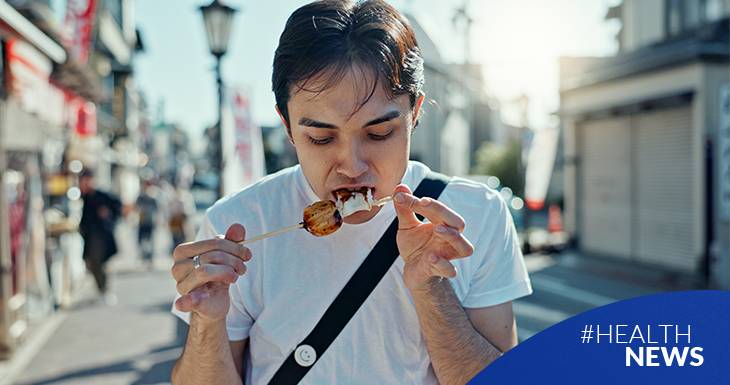One of the most common risks when traveling abroad is food poisoning, which occurs when you consume food or drink contaminated with bacteria, viruses, parasites or toxins.
One of the most common causes is the variation of common pathogens when crossing borders. The reason why it affects tourists? Simply because locals may have developed immunity and tolerance to certain pathogens due to more frequent exposure, and a traveler's immune system may not be as prepared to fight them off.
While traveling, it's easy to encounter conditions that favor food poisoning, including:
- Poor Hygiene: In some places, hygiene practices in food preparation and handling may not be adequate, increasing the risk of contamination.
- Contaminated Water: Drinking untreated water or using it to wash food can introduce pathogens into your system. This is common in areas where drinking water is not adequately treated. Because freezing does not kill bacteria and other pathogens, the same is true for ice.
- Unpasteurized Dairy Products: These are readily available for purchase in many parts of the world. While these products are often considered cultural delicacies, they can also contain harmful bacteria such as E. coli, listeria, and salmonella. Undercooked Foods: Consuming meat, fish, or seafood that is not thoroughly cooked can lead to infections, as these products can harbor dangerous bacteria and parasites.
- Street Food: Although an essential part of the cultural experience in many places, street food is sometimes prepared under conditions that do not meet necessary hygiene standards, and is often left out at room temperature for extended periods.
- Bushmeats: Monkey, bat, and rodent meat can be found available for consumption in markets around the world. These should be avoided, as they can carry extremely dangerous bacteria and viruses (e.g., Ebola).
Food poisoning can be common in many destinations around the world, especially those where hygiene and sanitation practices are not as strict.
In which countries are travelers most at risk for stomach problems caused by food and drink?
India is ranked first - due to its unsafe water and hygiene conditions - followed by Kenya, Sri Lanka, Indonesia, Mexico, Egypt, Singapore, Morocco, the Caribbean and El Salvador - the latter of which has been linked to a local mollusk, the purple pansa snail.
Food Poisoning Symptoms
Food poisoning symptoms can range from mild to severe and usually appear a few hours to several days after consuming the contaminated food.
- Nausea and vomiting
- Diarrhea
- Abdominal pain and cramps
- Fever
- Fatigue and weakness
Traveler's sickness, also known as "traveler's diarrhea," is one of the most common forms of food poisoning - affecting 30 to 70 percent of tourists - and is usually caused by consuming contaminated food or water.
Since diarrhea and vomiting are the body's natural immune response to expel toxins, taking anti-diarrhea and anti-nausea medications, such as loperamide (Fortasec) and bismuth subsalicylate (Gastronedol), is recommended if you're boarding a plane and won't have easy access to a bathroom. There's no quick fix for these foodborne illnesses. Most resolve once the bacteria or toxins have been eliminated from the body. To combat discomfort during this unpleasant period, doctors recommend drinking plenty of fluids to prevent dehydration and taking painkillers for cramps.
Symptoms are usually mild and resolve on their own, but severe cases may also occur and may require the use of antibiotics.
So, what foods and drinks are safe to consume:
- Peeled Fruits and Vegetables
- Cooked Foods
- Dried and Packaged Foods
- Pasteurized Dairy Products
- Bottled Water/Carbonated Drinks, Sodas and Canned Juices
- Hot Tea and Coffee
It is important to wash your hands with soap and water before eating or handling food. If soap and water are not available, use an alcohol-based hand sanitizer. And finally, purchasing travel insurance is an essential investment for any tourist, especially when traveling to destinations where food safety can be an issue. With the right coverage that covers medical emergencies - including consultations, medication and hospitalization in the event of severe poisoning - you can enjoy your trip with peace of mind knowing that you are protected.


